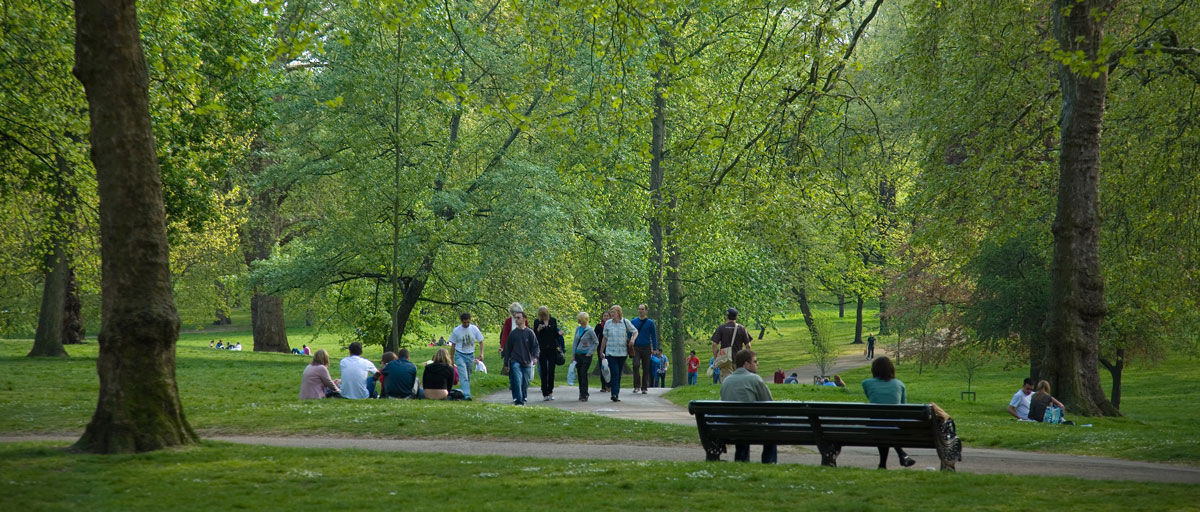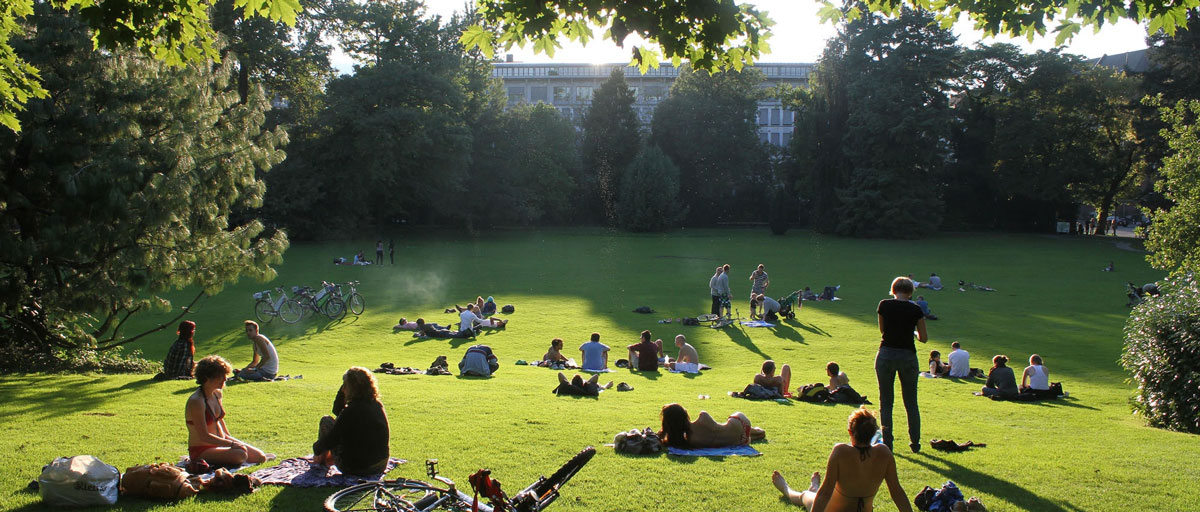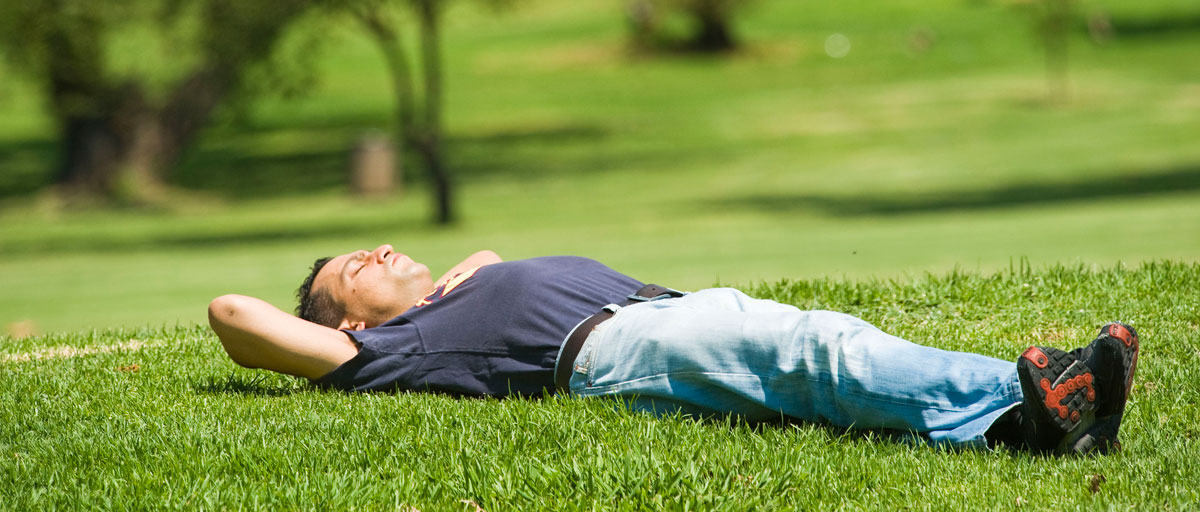Bildtext får vara max två rader text. Hela texten ska högerjusteras om den bara ska innehålla fotobyline! Photo: B. Christensen/Azote
CORONAVIRUS AND URBAN NATURE
Coronavirus highlights the need for open green spaces in cities

Researchers ensuring nature access for the public should be a fundamental strategy of cities when coping with the COVID-19 crisis. This is because contact with nature offers a way to deal with and counteract stressors of everyday life, while still allowing for social distancing. Photo: Wikimedia Commons
- Ensuring nature access for the public should be a fundamental strategy of cities when coping with this crisis
- Nature offers a way to deal with and counteract stressors of everyday life, while still allowing for social distancing
- Spatial development and property-rights arrangements will shape future access to public green areas
In times of social distancing, green areas are more important than ever
WELL-BEING AT ARM’S LENGTH: The 2020 coronavirus pandemic has caused countries across the world to implement measures of social distancing in order to curb the spreading of COVID-19. That has probably helped, but loneliness, anxiety and depression loom, particularly among people living in dense urban settings with limited public space.
In a fortcoming study published in Landscape and Urban Planning, centre researchers Stephan Barthel, Johan Colding and colleagues discuss the role urban green recreational areas play in these testing times.
They argue that ensuring nature access for the public should be a fundamental strategy of cities when coping with this crisis.
This is because contact with nature offers a way to deal with and counteract stressors of everyday life, while still allowing for social distancing. Provided people are allowed outdoors, of course.
Nature contact provides a host of positive well-being effects while still allowing for social distancing.
Karl Samuelsson, lead author
Protecting space and assigning property rights
While the authors do not suggest contact with nature is sufficient to combat all challenges associated with COVID-19, they consider it to be an important part of it.
Although increased greenery in cities will not happen during the current pandemic crisis, it can insights for future planning. That means dealing with two things: spatial development and property-rights arrangements.
The first refers to the need to actually allocated sufficient space for nature in cities. Current extreme urban densities are not helping anyone.
But property-rights arrangements are equally important to consider.
The world is witnessing a global demise in public space. After 9/11, many open green areas in New York have been eradicated. This is despite the fact that community gardens in the United States have been widely recognized as an effective grassroots response to urban disinvestment and decay.
Detroit is a telling example where such gardens have been used to supplement unemployed workers and their families with food.
Long-term and short term effects
All this point to the fact that access to urban nature is important for urban resilience in the short – and long-term. In the short term, it provides much-needed buffering capacity during this current pandemic for maintain physical and mental health.
At the same time, the authors conclude, how space and property rights are arranged to ensure access to nature will be of direct importance for general urban resilience in the long-term.
Samuelsson, K., Barthel, S., Colding, J., Macassa, G., Giusti, M. 2020. Urban nature as a source of resilience during social distancing amidst the coronavirus pandemic. Landscape and Urban Planning. Preprint DOI: 10.31219/osf.io/3wx5a
For more information about the publication, contact co-author Stephan Barthel
Stephan Barthel studies environmental issues in metropolitan landscapes and has been part of developing the discourse on urban social-ecological systems.









